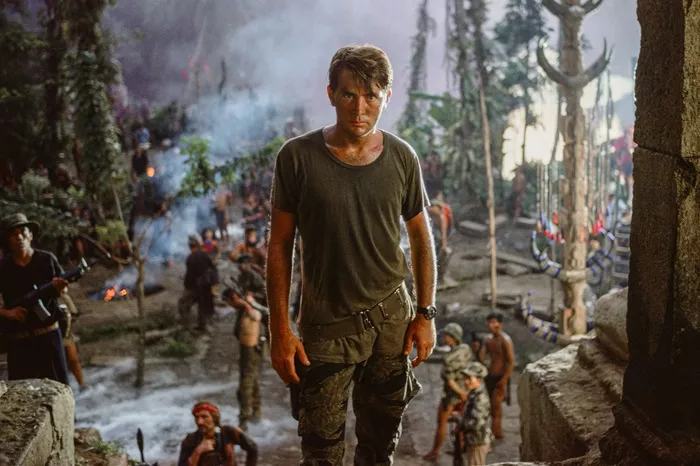Francis Ford Coppola’s 1979 epic war film “Apocalypse Now” remains one of the most debated and scrutinized works in cinematic history. Set during the Vietnam War, the film depicts the journey of Captain Benjamin Willard into the heart of darkness to assassinate a rogue colonel named Kurtz. While praised for its cinematography, performances, and thematic depth, “Apocalypse Now” has also courted controversy on multiple fronts, sparking discussions about its portrayal of war, violence, and colonialism. In this article, we delve into the various reasons why “Apocalypse Now” continues to provoke controversy and debate decades after its release.
1. The Depiction of War and Violence
Why is Apocalypse Now controversial? One of the primary reasons lies in its unflinching portrayal of the brutality and chaos of war. From the opening sequence featuring napalm bombings to the visceral combat scenes along the river, the film offers a harrowing depiction of the Vietnam War. Coppola’s decision to confront audiences with the graphic realities of warfare has been both lauded for its authenticity and criticized for its explicitness.
The graphic violence and disturbing imagery throughout the film have led to debates about the ethical responsibilities of filmmakers when depicting war. Critics argue that “Apocalypse Now” glorifies violence and desensitizes viewers to its horrors, while others contend that it effectively conveys the senselessness and devastation of armed conflict. This tension between realism and sensationalism has contributed to the ongoing controversy surrounding the film.
2. Cultural Appropriation and Colonialism
Why is Apocalypse Now controversial? Another contentious aspect of the film is its treatment of Vietnamese culture and its representation of colonialism. Set against the backdrop of the Vietnam War, “Apocalypse Now” portrays the Vietnamese people primarily as exoticized others or as faceless enemies. The film’s depiction of indigenous rituals and customs has been criticized for its cultural appropriation and Orientalism.
Moreover, the character of Colonel Kurtz, who has gone rogue and established his own kingdom deep in the jungle, embodies the archetype of the white savior descending into the “heart of darkness” to confront the supposed savagery of the native inhabitants. This narrative trope, derived from Joseph Conrad’s novella of the same name, has been condemned for perpetuating colonialist attitudes and stereotypes.
While some argue that “Apocalypse Now” critiques imperialism and the dehumanizing effects of war, others believe that it reinforces paternalistic notions of Western superiority. The film’s treatment of Vietnamese characters and its portrayal of colonialism continue to be subjects of heated debate among critics and audiences alike.
See Also: Why is The Hobbit so Exciting?
3. Psychological Themes and Moral Ambiguity
Why is Apocalypse Now controversial? Beyond its depiction of war and colonialism, the film delves into complex psychological themes and moral ambiguity, further fueling controversy. As Captain Willard journeys upriver to confront Colonel Kurtz, he grapples with questions of sanity, morality, and the nature of evil. Kurtz himself becomes a symbol of existential despair and moral decay, raising profound questions about the human condition.
The film’s exploration of moral ambiguity and the thin line between civilization and savagery has divided audiences. While some interpret Kurtz’s descent into madness as a critique of the dehumanizing effects of war, others view it as a nihilistic endorsement of amorality. Coppola’s refusal to provide easy answers or moral clarity has led to divergent interpretations of the film’s meaning and message.
Moreover, the character of Colonel Kurtz, portrayed with chilling intensity by Marlon Brando, has been the subject of controversy due to the actor’s unconventional approach to the role. Brando’s improvisational style and erratic behavior on set led to tensions with the director and resulted in significant delays and budget overruns. While some hail Brando’s performance as a tour de force of method acting, others criticize it as self-indulgent and distracting.
4. Production Challenges and Behind-the-Scenes Drama
Why is Apocalypse Now controversial? The tumultuous production history of “Apocalypse Now” has also contributed to its controversial reputation. From budget overruns to on-set conflicts, the making of the film was plagued by a series of challenges that tested the patience and resolve of everyone involved. Coppola famously declared that the production was “not a film about Vietnam, it is Vietnam,” underscoring the chaotic and surreal nature of the filming process.
The decision to shoot on location in the Philippines during typhoon season proved to be a logistical nightmare, with sets destroyed and equipment damaged by inclement weather. Additionally, Coppola struggled to rein in the egos and creative impulses of his cast, which included iconic actors such as Martin Sheen, Robert Duvall, and Dennis Hopper, alongside the mercurial Brando.
The behind-the-scenes drama and production challenges of “Apocalypse Now” have become the stuff of legend, overshadowing the film itself in some respects. While Coppola’s determination to realize his vision at any cost ultimately resulted in a cinematic masterpiece, it also raised questions about the ethics of filmmaking and the toll it can take on those involved.
5. Legacy and Cultural Impact
Why is Apocalypse Now controversial? Despite the controversies surrounding its production and themes, “Apocalypse Now” has left an indelible mark on the cinematic landscape. The film’s stunning visuals, haunting score, and powerhouse performances have solidified its status as a classic of American cinema. Its influence can be seen in subsequent war films, as well as in popular culture more broadly.
Moreover, “Apocalypse Now” continues to spark discussions and debates about the nature of war, imperialism, and the human psyche. Its exploration of existential themes and moral ambiguity has ensured its place in the annals of film history, even as its controversial elements remain subjects of scrutiny and analysis.
In Conclusion
“Apocalypse Now” is controversial for a multitude of reasons, ranging from its depiction of war and violence to its treatment of colonialism and psychological themes. The film’s production history, legacy, and cultural impact have only served to amplify these controversies, ensuring that it remains a subject of fascination and debate for generations to come. Whether viewed as a masterpiece of cinema or a problematic relic of its time, “Apocalypse Now” continues to challenge and provoke audiences, inviting them to confront the darkness within themselves and the world around them.























